- Rated 5.0 by 400+ locals.
Dry Needling Sydney: Relieve Pain, Ease Tight Muscles & Recover Faster
- Relieve pain, tension and tight muscles.
- Gentle and highly qualified practitioners.
- Fast, natural results without medication.
- On the spot health fund rebates.
Samuel Grey
“Great experience. These guys really know what they’re doing. My shoulder feels so much better!
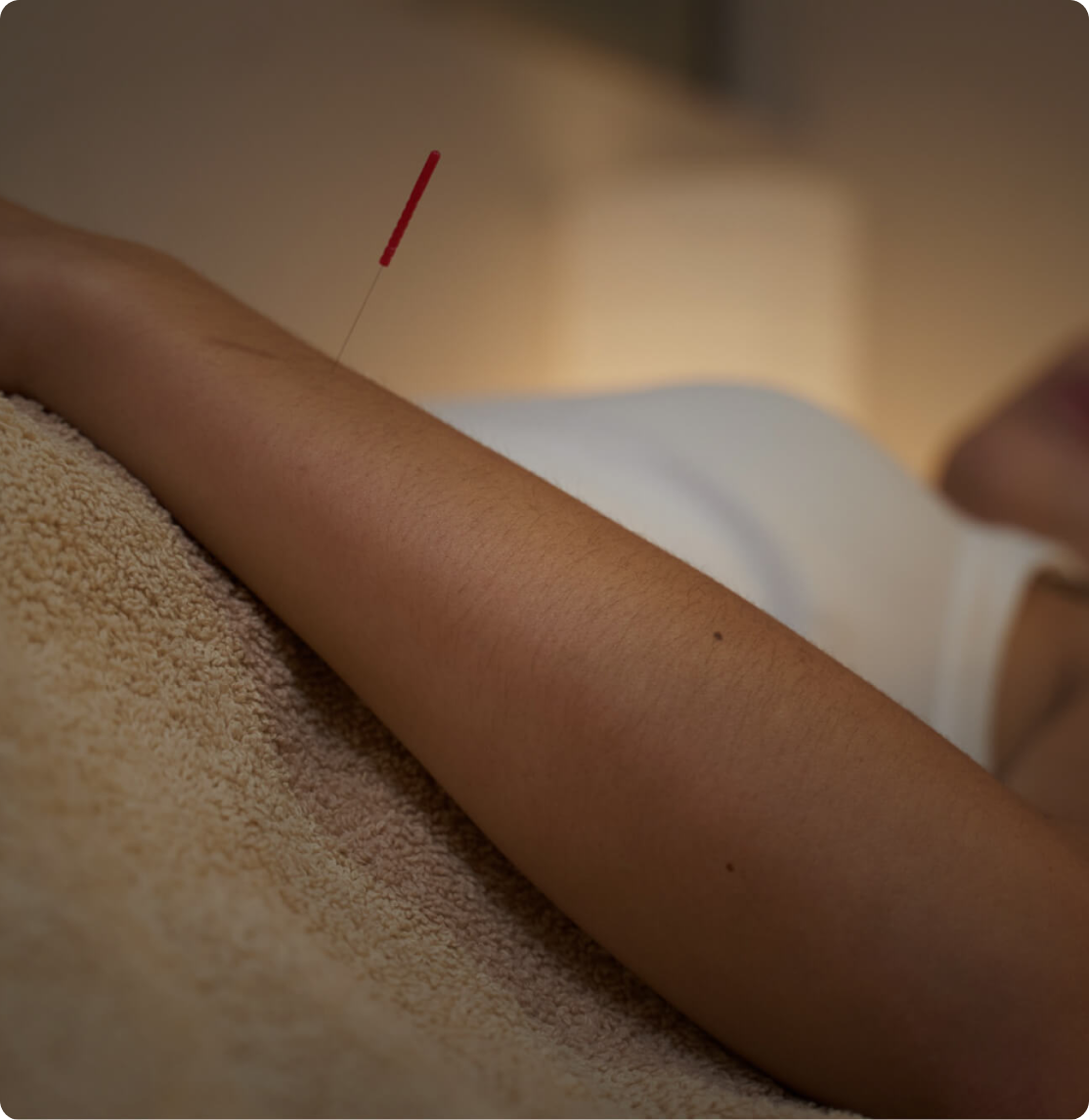
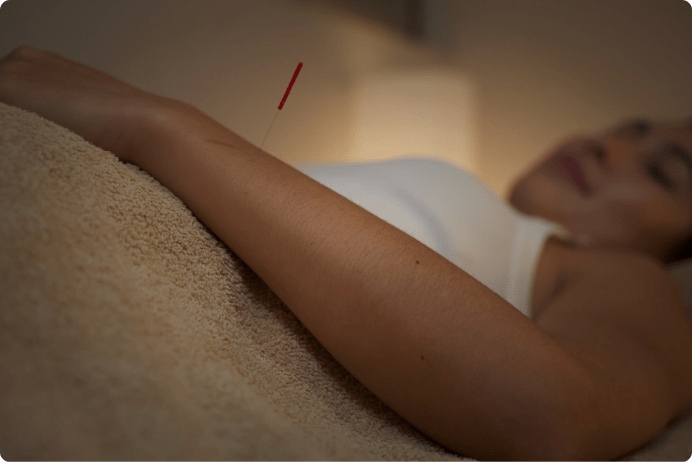
At Village Remedies we specialise in distal needling and your first treatment will include an assessment and treatment via distal needling (away from the site of pain), this is used to both treat and diagnose your condition without any risk of further injury. Based on how you respond and only if appropriate we may use local techniques.
There is a classic saying in Chinese Medicine, ‘you don’t slap a crying baby’, In this case the site of pain is the crying baby. Therefore if we can get the injury to heal without having to risk further damage with local techniques we find we get a faster, more effective and safer result and we will always try that first.
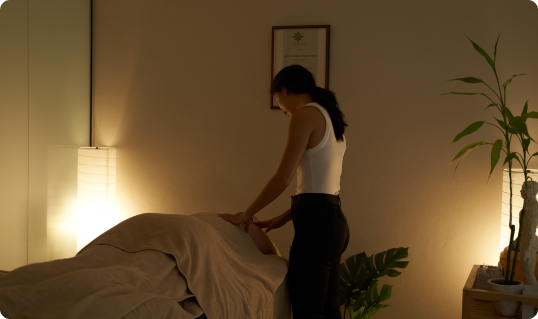

Struggling with muscle pain, tightness or injury recovery? Dry needling can help.
When your muscles are tight, sore, or locked up, it affects everything from how you move, how you sleep, and how you feel.
Dry needling therapy offers fast, targeted relief by releasing trigger points, improving mobility, and kickstarting your body’s natural healing process.
Whether it’s neck pain, back stiffness, tension headaches, or a sports injury, dry needling treatment can help reduce pain, loosen tight muscles, and restore function naturally.
At Village Remedies, our dry needling treatments are performed by qualified acupuncturists with years of experience and advanced training in the dry needling technique.
Unlike weekend-course needlers, our practitioners understand the bigger picture—using dry needle therapy as part of a holistic manual therapy approach to help you feel your best long after the session ends.
So if you’re ready to move better, feel better, and get back to doing what you love, book a dry needling session at our Sydney CBD or Balmain clinic today.
- Targeted Pain Relief
- Improved Range of Motion
- Accelerated Natural Healing
Dry Needling Can Help With
- Neck and back pain
- Lower back pain
- Hip pain
- Knee pain
- Headaches/migraines
- Sciatica
- Shoulder impingements
- Rotator cuff injuries
- ITB (iliotibial band) pain
- Tennis and golfer's elbow
- Plantar fasciitis
- Achilles tendinopathy
- + more conditions
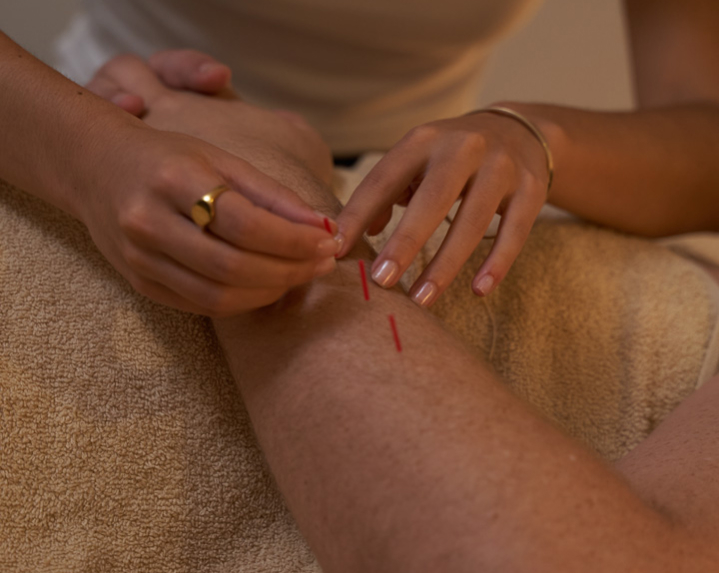
Your Go-To for Dry Needling in Sydney
Village Remedies is your trusted destination for acupuncture and dry needling near you. From stress and migraines to athletic injuries, our acupuncture and dry needling treatments help address diverse health conditions.
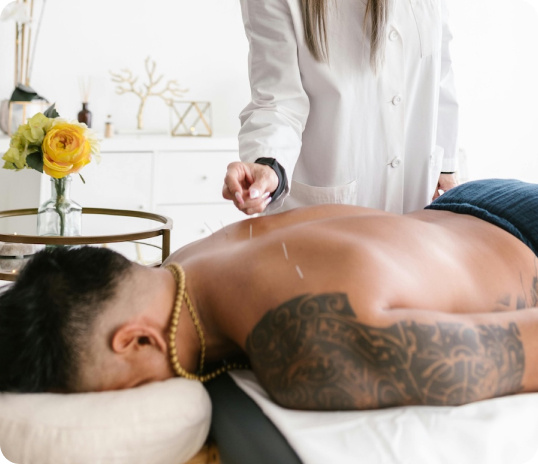
20+ Years Experience
Our dry needling treatments are delivered by highly trained acupuncturists with years of hands-on experience. You’ll receive precise, effective care backed by a deep understanding of the body.
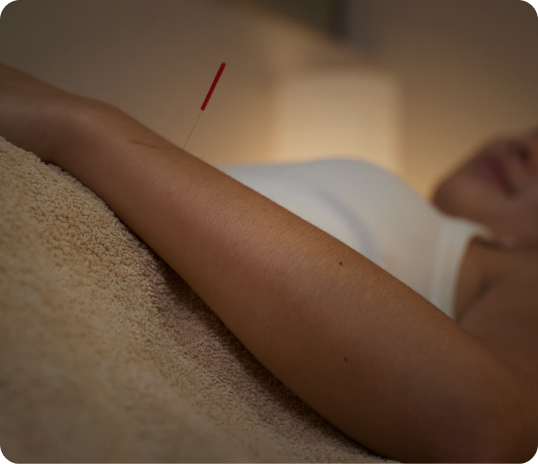
Holistic Approach
We don’t just treat pain — we address what’s causing it. By combining dry needling with a holistic view of your health, we help improve movement, reduce stress and support your overall recovery.
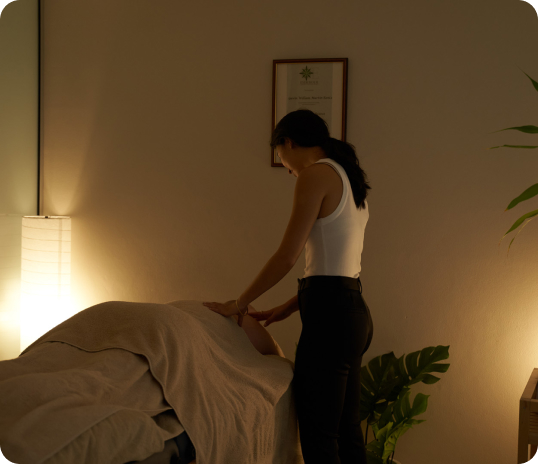
Personalised Treatment
Every body is different. That’s why we customise every dry needling session to your unique condition, goals and lifestyle — for better results that actually last.
Over 400 five star reviews from satisfied patients.

Love it, or don’t pay. If you aren’t satisfied with your first visit, we will refund your entire appointment fee.
About Village Remedies
We’re experienced Chinese medicine practitioners who take a practical, results-focused approach to health. Many of our clients come to us for help with sleep issues, stress, muscular pain, and overall wellbeing.
Using traditional Chinese herbal medicine, acupuncture, and dry needle therapy, we work to rebalance the body’s systems — helping restore healthy sleep cycles, reduce stress, and support deeper, more restful sleep.
Our goal is to help your body and mind shift out of a constant “on” state and into true rest and recovery, so you can function and feel better every day. Our dry needling technique targets muscle tightness and muscular pain to speed up your recovery and improve movement.
Modern life can throw your body out of rhythm. If you’ve been feeling off and struggling to bounce back on your own, we’re here to support you with expert needle therapy and a holistic manual therapy approach.
Book an appointment today and let’s get you back in sync.
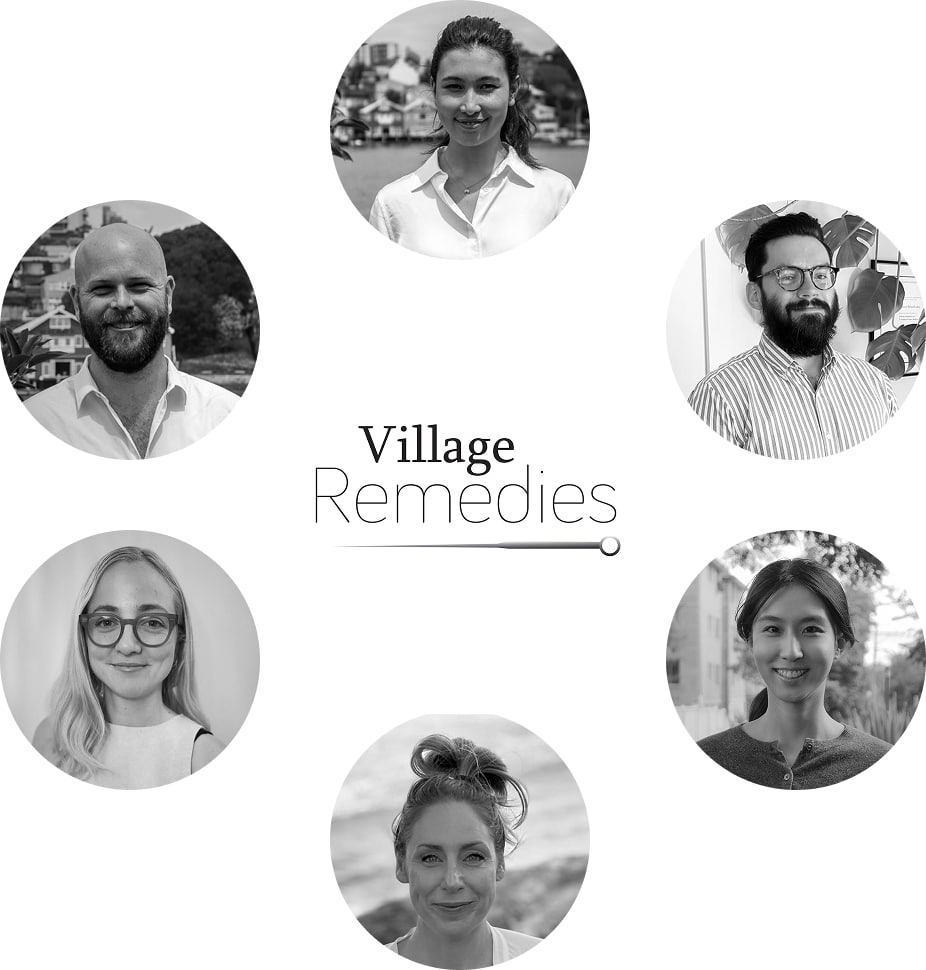
What is the difference between dry needling and accupuncture?
Dry needling focuses on releasing muscle tension and trigger points, while acupuncture is a broader system of Traditional Chinese Medicine used to treat a wide range of physical and internal conditions.
At Village Remedies Sydney acupuncture clinics in Balmain and the CBD, we use dry needling (ashi needling) techniques where appropriate, but it is only a small part of our toolkit (also see distal acupuncture, motor point acupuncture and electro acupuncture pages). Our practitioners have experience using dry needling work with clients who have issues such as muscular pain, muscle tightness, and injury recovery.
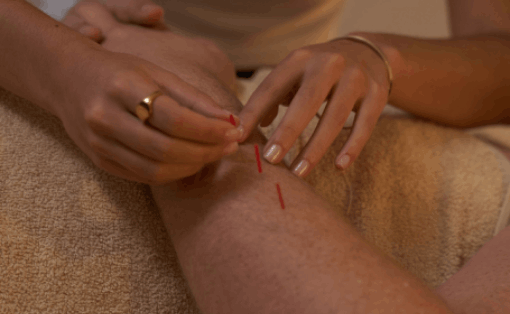
Dry Needling
Dry needling targets tight muscles and trigger points by inserting fine needles directly into the affected area. It’s ideal for relieving pain, improving range of motion and speeding up injury recovery.
While effective for musculoskeletal issues, it doesn’t address internal imbalances. That’s why we often combine dry needling with acupuncture for longer-lasting results.

Acupuncture
Acupuncture is a holistic treatment that works by restoring balance in the body. It uses specific points — often away from the area of pain — to address both the symptoms and the underlying cause.
We commonly use acupuncture to support pain relief, sleep, stress, digestion, hormonal balance and more. It’s our preferred approach when the goal is to improve overall wellbeing, not just treat isolated symptoms.
Dry Needling Sydney FAQ
How does dry needling differ from acupuncture?
Both methods use fine, stainless-steel, filiform needles inserted into the body, but they differ in their theoretical foundations.
Dry needling is based on modern Western medical principles of anatomy and neurophysiology. It targets muscles, nerves, and joints to alleviate muscular pain, spasms, or tension by increasing blood flow and oxygen using a precise dry needling technique.
In contrast, acupuncture is rooted in traditional Chinese medicine and offers a diverse range of styles and techniques. Some of these techniques include distal acupuncture, which needles areas distant from the problem site. Your practitioner will determine whether dry needling work or distal acupuncture is most suitable for your specific condition.
Dry needling is actually part of traditional acupuncture therapy and was traditionally known as “ashi” needling. For acupuncturists, this is considered a form of local acupuncture where tender points in the affected muscle fibre are targeted, typically limited to treating musculoskeletal pain or injury.
What qualifications are required for dry needling?
To be qualified as an acupuncturist in Australia, a person must complete a minimum 4-year bachelor of health science degree, involving hundreds of hands-on clinical hours.
Once registered, they must complete 20+ hours per year of professional development to maintain their skills.
This ensures a qualified practitioner has excellent needle therapy skills, using the dry needling technique effectively and safely with thin needles to get targeted results with minimal discomfort.
Non-acupuncturists often gain dry needling qualifications over a weekend course without ongoing development, which may result in inconsistent or less effective needle therapy, limited mainly to musculoskeletal complaints.
Is dry needling painful?
You may experience brief discomfort, especially when the thin needle stimulates a trigger point, causing a muscle twitch or cramp.
While needle insertion is usually painless, some tight muscle soreness or tenderness around the site is common and typically resolves soon after treatment.
Continuing to move and stretch post-session can help alleviate these sensations.
Are there any side effects of dry needling?
The most common side effect is soreness during and after treatment. Other minor effects include stiffness and bruising around the insertion site.
Choosing a qualified practitioner ensures safe needle therapy and reduces risks.
How to prepare for a dry needling appointment.
Follow these tips to ensure you’re ready and comfortable:
- Drink plenty of water before your session. Hydration helps your muscles respond better to treatment.
- Have a light meal or snack before your appointment to avoid discomfort such as nausea or dizziness.
- Avoid alcohol and caffeine before your session, as they may affect your body’s response to needle therapy.
Where can I get dry needling in Balmain?
If you’re looking for professional dry needling Balmain, Village Remedies offers expert treatments at our conveniently located clinic.
Our experienced acupuncturists combine dry needling with holistic care to help reduce pain, improve mobility, and support your overall wellbeing.
Whether you’re dealing with a sports injury, postural issues, or chronic tension, our dry needling Balmain team is here to help you feel your best.
What does dry needling treatment help with?
Dry needling treatment is commonly used to relieve muscular tension, reduce muscle tightness, and address persistent spasms that may be limiting your movement or causing pain.
By targeting specific muscle fibres with a precise needling technique, this treatment can help improve circulation, ease discomfort, and support faster recovery from injury or overuse.
Is there a difference between an acupuncture needle and a dry needling needle?
Both acupuncture and dry needling use similar tools, very fine, filiform needles, but the difference lies in how they’re used. An acupuncture needle is typically inserted along meridian points based on Traditional Chinese Medicine, while a dry needling needle is inserted directly into affected muscles or trigger points.
In New South Wales, only qualified practitioners are legally allowed to use these techniques, ensuring treatments are safe, effective, and tailored to your condition.
